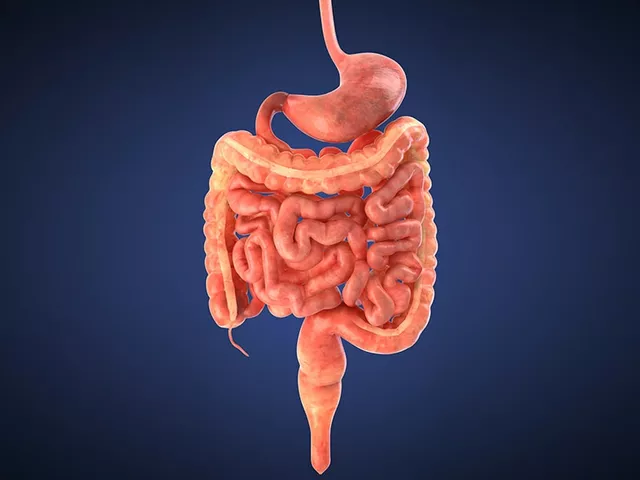Understanding ADHD
Before we delve into the connection between ADHD and sleep problems, it's crucial to first understand what ADHD is. ADHD, or Attention Deficit Hyperactivity Disorder, is a neurodevelopmental disorder that affects both children and adults. It's characterized by symptoms such as difficulty maintaining focus, hyperactivity, and impulsivity. People with ADHD often have trouble organizing tasks, following through on instructions, and managing time effectively. Although it's more commonly diagnosed in children, many adults also struggle with this condition, sometimes without even realizing it.
Identifying Sleep Problems
Now, let's take a moment to address what we mean by sleep problems. A good night's sleep is essential for overall health and well-being. However, many people struggle with sleep disorders such as insomnia, sleep apnea, restless legs syndrome, and narcolepsy. These disorders can lead to a lack of restful sleep, causing fatigue, irritability, and other health problems. It's important to note that sleep problems can have various causes, including physical health conditions, mental health issues, and lifestyle factors.
The Link between ADHD and Sleep Problems
Studies have shown a significant link between ADHD and sleep problems. Many people with ADHD often have difficulty falling asleep, staying asleep, or waking up in the morning. This lack of restful sleep can exacerbate the symptoms of ADHD, making it harder to focus during the day. Additionally, some symptoms of ADHD, such as hyperactivity and impulsivity, can further disrupt sleep patterns, creating a vicious cycle that can be challenging to break.
How ADHD Affects Sleep
Several factors contribute to how ADHD affects sleep. One of the main reasons is that the brain's dopamine system, which helps regulate sleep, is often dysfunctional in people with ADHD. Additionally, many people with ADHD often have a delayed sleep-wake phase, meaning they naturally fall asleep and wake up later than most people. This can lead to chronic sleep deprivation, especially in a society that typically operates on an early-to-rise schedule.
Impact of Sleep Problems on ADHD Symptoms
As mentioned earlier, sleep problems can worsen the symptoms of ADHD. Lack of sleep can lead to increased difficulty concentrating, more frequent and severe bouts of hyperactivity, and heightened impulsivity. This can impact a person's ability to perform at school or work, maintain healthy relationships, and manage daily tasks effectively.
The Role of Medication
Many people with ADHD take medication to manage their symptoms. However, some of these medications can interfere with sleep. Stimulant medications, in particular, can cause insomnia if taken too close to bedtime. On the other hand, some non-stimulant ADHD medications can cause excessive sleepiness. It's essential for individuals taking ADHD medications to work closely with their healthcare provider to manage any sleep-related side effects.
Strategies for Managing Sleep Problems in ADHD
Fortunately, there are strategies that can help manage sleep problems in individuals with ADHD. Creating and sticking to a regular sleep schedule can help regulate the body's internal clock and improve sleep quality. Limiting exposure to screens before bedtime, keeping the bedroom dark and cool, and engaging in relaxing activities before bed can also promote better sleep. Additionally, cognitive-behavioral therapy for insomnia (CBT-I) can be beneficial for individuals with ADHD and sleep problems.
When to Seek Professional Help
If you or a loved one has ADHD and is struggling with sleep problems, it's important to seek professional help. A healthcare provider can evaluate the situation, consider the potential impact of any medications, and recommend appropriate treatment strategies. Remember, you don't have to navigate these challenges alone. With the right support, individuals with ADHD can manage their sleep problems and improve their overall quality of life.




Pramod Hingmang
I totally get how exhausting it feels when the brain won’t let you wind down; the constant buzz can turn bedtime into a battlefield and mornings into a blur. The link between ADHD and sleep feels like a tangled spiderweb where each strand pulls at the other. It’s not just about difficulty falling asleep but also the restless nights that make the day feel heavier. Creating a calm bedtime routine can act like a gentle net catching those stray thoughts. Simple steps like dimming lights and turning off screens can give the brain a chance to slow down.
Benjamin Hamel
While the article paints a neat picture of a causal chain between ADHD and sleep disturbances, the reality is messier than a tidy diagram. Most studies cited are cross‑sectional, which means they capture a snapshot rather than a flowing river of cause and effect. Moreover, the role of comorbid anxiety or depression is often swept under the rug, yet these conditions are known sleep‑disruptors in their own right. One could argue that what we label as “ADHD‑related insomnia” might actually be a side‑effect of untreated emotional turbulence. And let’s not forget the impact of modern lifestyle: late‑night scrolling, caffeine binges, and inconsistent work schedules are all culprits that blur the lines of any single diagnosis. So before we crown ADHD as the chief architect of sleeplessness, a broader lens is needed, one that captures the whole ecosystem of stressors and habits. In short, correlation does not equal causation, and the article could benefit from a more nuanced discussion.
Christian James Wood
Honestly, the piece reads like a toddler’s attempt at linking two unrelated toys. It flirts with the idea that ADHD chemicals meddle with dopamine pathways, yet it offers no concrete mechanism beyond vague neurotransmitter chatter. The claim that stimulant medication “can cause insomnia if taken too close to bedtime” is a well‑known fact, not a revelation, and the author treats it as if it were groundbreaking. Furthermore, the suggested “regular sleep schedule” advice sounds like generic baby‑care tips that anyone with a smartphone could find on a quick Google search. By ignoring the substantial body of literature that highlights the role of circadian rhythm disorders in ADHD, the article does a disservice to readers seeking depth. It also downplays the fact that many patients experience paradoxical calming effects from stimulants, an observation that could flip the narrative entirely. In my view, the article is a half‑baked attempt at summarizing a complex biopsychosocial puzzle, and it leaves the critical questions dangling in the dark.
Rebecca Ebstein
Hey there! I love how the post points out that small changes can make a big differece in sleep quality. Even simple things like a warm tea before bed or a short breathing exrcise can calm that racing mind. Remember, you’re not alone in this journey - many folks with ADHD find a rhythm that works for them. Keep experimenting and stay positive!
Artie Alex
In response to the earlier critique, it is imperative to contextualize the neurophysiological substrates underpinning attentional dysregulation and somnolent dysphoria. The dysregulation of dopaminergic mesocorticolimbic pathways, as elucidated by contemporary neuroimaging meta‑analyses, substantiates a bidirectional interaction between executive function deficits and circadian misalignment. Moreover, the pharmacokinetic profile of methylphenidate exhibits a half‑life variance that can intersect with endogenous melatonin secretion, thereby elucidating the mechanistic plausibility of nocturnal arousal. Consequently, a granular appraisal that integrates chronotherapeutic interventions alongside stimulant titration is warranted, rather than a reductive dismissal of the presented evidence.
abigail loterina
Your point about establishing a consistent bedtime routine really hits home. Even a 15‑minute wind‑down can signal the brain that it’s time to switch off. Pairing that with a dim environment and a brief journal entry often helps me track patterns. It’s a practical step that many can adopt without major lifestyle overhauls.
Roger Cole
Keep the schedule simple and stick to it.
Krishna Garimella
Think of sleep as the natural reset button for the brain’s executive network. When ADHD hijacks that network during the day, the night becomes a battlefield for lingering impulses. Philosophically, this suggests that mindfulness practices that promote present‑moment awareness could recalibrate the system, making the transition to sleep smoother. It’s worth exploring meditation or gentle yoga before lights out.
nalina Rajkumar
Totally vibing with the idea that small habits can change the game 😊💤
Even a cozy blanket can feel like a hug for the mind 🌙
Michael Barrett
Indeed-while the article-does attempt-a sweeping generalization; yet-one must consider-that the empirical evidence-remains fragmented! The methodological limitations-are not merely footnotes; they are core to interpreting any causative claim. Therefore-critically-readers should-scrutinize-each cited study!!
Inma Sims
What a delightfully exhaustive overview of something that most of us have already mastered through trial and error. One can only imagine the sheer astonishment of discovering that turning off the TV before bed might improve sleep-truly a revelation worthy of a Nobel prize. Yet, the polished prose masks a glaring omission: the socioeconomic barriers that prevent many from implementing these “simple” strategies. Nonetheless, congratulations on re‑packaging common sense in clinical language; the effort is, without doubt, commendable.
Gavin Potenza
Isn't it fascinating how the mind's restless curiosity mirrors the night sky's endless stars? When we chase thoughts like comets, sleep slips away, leaving us orbiting in wakefulness. Perhaps embracing a nightly ritual that grounds us-like reading a short poem-acts as a gravitational pull, coaxing the restless psyche back into repose. In my experience, a bit of reflective writing before lights out can turn the mental turbulence into calm tides.
Virat Mishra
Honestly, another piece rehashing the same old sleep tips feels like watching paint dry on a boring wall. The author never digs deep, just scratches the surface with generic advice. It's as if they wrote it while half‑asleep themselves.
Daisy Aguirre
While I understand the frustration, dismissing the entire conversation overlooks the nuanced ways small adjustments can genuinely shift sleep quality. For many, adopting a consistent wind‑down routine-no matter how modest-has been a game‑changer, turning chaotic nights into restorative slumber. It's not about grand gestures but about building incremental habits that respect the brain's rhythm. So, before we write off the whole dialogue, let's acknowledge the lived experiences that support these strategies.
Natalie Kelly
Yo keep it real, a good night’s rest changes everything.
Tiffany Clarke
Sleep is a cruel illusion.
Sandy Gold
It is with a modicum of bemusement that I behold the perennial tendency to conflate correlation with causation in discussions of neurodevelopmental syndromes and nocturnal physiology. The auteur of the present exposition appears eager to parade a litany of well‑meaning suggestions, yet neglects to interrogate the epistemic foundations upon which such recommendations rest. One cannot simply assert that “stimulant medication may cause insomnia” without first delineating the pharmacodynamic temporal windows and their interaction with endogenous melatonin fluxes. Moreover, the manuscript glosses over the seminal work of Eisenberg et al., which delineates a bidirectional feedback loop wherein sleep deprivation exacerbates attentional deficits, thereby perpetuating a self‑reinforcing cycle. The omission of such pivotal literature betrays a superficial engagement with the subject matter. In addition, the suggested behavioral interventions-darkened rooms, screen curtailment, and bedtime rituals-while undeniably beneficial, are presented as novel insights rather than the distillation of decades of sleep hygiene scholarship. It would be remiss not to acknowledge the sociocultural determinants of sleep, including socioeconomic status, occupational demands, and circadian misalignment induced by shift work, all of which intersect with ADHD symptomatology. The discourse would have been richer, indeed, had the author integrated a biopsychosocial framework rather than a reductive binary. Nevertheless, the piece does succeed in highlighting the lived frustration of individuals navigating both ADHD and restless nights, a sentiment that resonates across clinical and lay audiences alike. To that end, the inclusion of pragmatic tips offers a glimmer of actionable hope amidst the theoretical thicket. Yet, I am left yearning for a deeper synthesis, one that weaves together neurochemical pathways, chronotherapeutic strategies, and the lived phenomenology of those affected. Only then can we transcend the realm of cursory overviews and approach a truly integrative understanding. In conclusion, while the article provides a commendable starting point, it stops short of the scholarly rigor required to illuminate the intricate tapestry of ADHD‑related sleep disturbances. Future research should prioritize longitudinal designs that capture the evolving interplay between attentional regulation and circadian rhythms across the lifespan. Such efforts would not only enrich our theoretical models but also inform personalized therapeutic modalities.